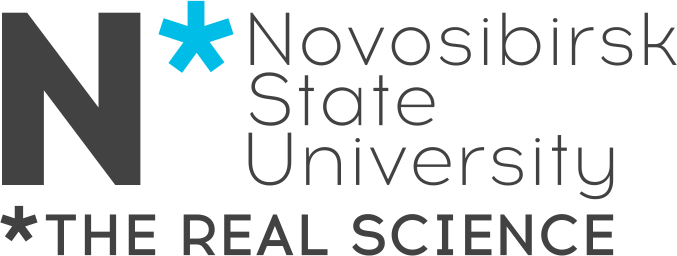Low-Dimensional
Hybrid Materials
Hybrid Materials
The development of new materials is on the list of priorities in the development of science and technologies, as well as the list of breakthrough technologies of the Russian Federation. In recent years, the most actively developing area in the field of materials science is the study of properties of promising low-dimensional hybrid materials based on graphene to create high-performance electrochemical devices (supercapacitors) of the new generation.
Key Achievements
Modern analytical equipment is used to enable comprehensive analysis of chemical, physical, and technological properties of materials

A computing cluster of hybrid architecture with the performance of 27.5 TFlops, 2432 cores and the memory capacity of 4.88 TB was built at NSU. It allows to perform supercomputer simulation of heat and mass transfer processes in the study of various physical and chemical phenomena
Areas of Research
Low-Dimensional Hybrid Materials
The main objective in this field is to design catalytic materials and reactors for processing traditional and renewable organic raw materials in fuels and valuable chemical products with the purpose of expanding the resource base of chemical and petrochemical industries.
Catalytic Materials and Technologies for the Production of Valuable Chemical Products, Energy and Resource Saving
The main objectives in this field are to design catalytic materials and reactors for processing traditional and renewable organic raw materials in fuels and valuable chemical products, including for the purpose of expanding the resource base of the chemical and petrochemical industries. Significant attention will be paid to the development of new catalytic systems and technologies of selective oxidation and dehydrogenation of hydrocarbons, the problems of controlled synthesis of bimetallic and composite catalysts, problems in processing associated petroleum and natural gases, the problems of biofuels.
Publications in journals indexed in Scopus
News
More news
More news
Scientific & Technical Council
Sergey Korenev
Area of scientific interest: coordination chemistry of transition metals; chemistry (including analytical) of platinum metals and functional materials on their basis.
Andrey Matveev
Sphere of scientific interests: x-ray diffraction of polycrystals; x-ray analysis; crystal chemistry.
Vladimir Reznikov
Research interests include stable nitroxyl radicals, chemistry, nitrogen-containing organic compounds, including heterocyclic, chemistry of coordination compounds with paramagnetic ligands, the use of nitroxyl radicals for Molecular Biology and Biophysics (spin labels, probes, pH indicators, detection of NO in vivo, etc). A Laureate of the State Prize of Russia in the field of science and technology (1994).
Alexander Bondar
Specialist in particle physics. Participated in experiments on colliding electron-positron beams, such as MD-1 and KEDR at VEPP-4, CMD-2 at VEPP-2M in Novosibirsk, and Belle B-factory in KEK, Japan. Proposed and successfully implemented a spectrometer for the VEPP-4M with the unique energy resolution for registering scattered electrons; has developed the method of creating electromagnetic calorimeters on the basis of the crystals of cesium iodide, which are now successfully used in a number of experiments. Head of the research group actively involved in the international project Belle (studying the phenomenon of nonconservation of combined (CP) parity in the decays of B mesons).
Vladimir Blinov
Specialist in elementary particle physics. Participated in the experiments MD-1 and KEDR at VEPP-4M collider (BINP, Novosibirsk), ARGUS at DORIS collider (DESY, Germany), BABAR at the B-factory PEP-II (SLAC, USA), CMS at the Large Hadron Collider at CERN, PANDA in (GSI, Germany). He is the leader of KEDR experiment. In this experiment the masses of elementary particles J / psi, psi (2s) and psi (3770) mesons were measure with the best precision.
Sergey Tsybulya
A specialist in the area of crystallography and structural analysis of catalytic materials. Reads a course of lectures: "Basics of crystallography and structural analysis", "Theory of scattering of x-rays", "Structural analysis of nanocrystals".
Vladislav Sadykov
Specialist in the field of heterogeneous catalysis, solid state chemistry, materials science, hydrogen energetics. Based on the results of fundamental research, highly efficient structured catalysts for redox processes were created and patented, including purification of automobile transport exhaust gases and exaust from industrial enterprises, ammonia oxidation to nitrogen oxides in the process of production of nitric acid, production of synthesis gas and hydrogen by selective oxidation, autothermal reforming and steam reforming of hydrocarbons and biofuels. Since the mid 1990s block catalysts for ammonia oxidation in the nitrogen oxides are widely used in industrial production of nitric acid under pressure. The Award of the Government of the Russian Federation in 1999 for the development and industrial implementation of a two-step ammonia oxidation technology in the process of nitric acid production based on a honeycomb oxide catalyst.
Oksana Kholdeeva
Research interests: selective liquid-phase oxidation of organic compounds, oxidation catalysis, environmentally friendly processes, nanomaterials chemistry and application of polyoxometalates in catalysis, mechanisms of catalytic reactions, the theory of foresight of catalytic properties. The expert of the Ministry of Education and Science of the Russian Federation.
Alexander Okotrub
Well-known specialist in the field of physical chemistry of carbon nanostructures. Under his leadership, research in the field of chemical modification of carbon nanostructures was conducted, the characteristics of their electronic structure was investigated, depending on the degree of fluorination, oxidation, doping with nitrogen, defects, etc
Sergey Gromilov
Sphere of scientific interests – the elucidation of mechanisms of catalytic reactions on platinum group metals using physico-chemical methods, including in situ at the atomic and molecular level.
Partners






















